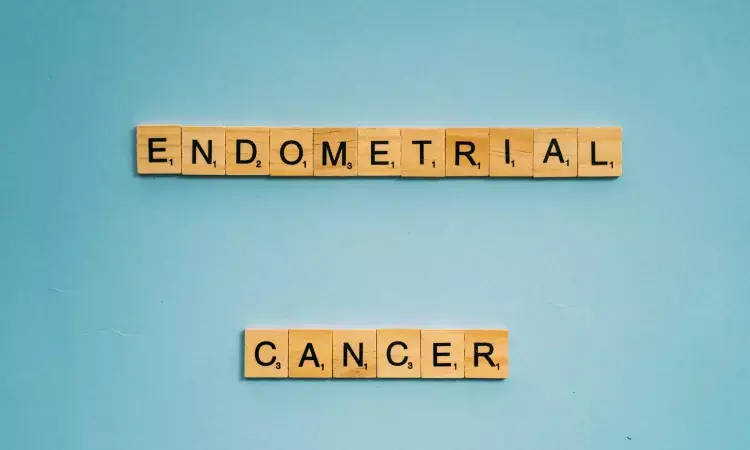- Home
- Medical news & Guidelines
- Anesthesiology
- Cardiology and CTVS
- Critical Care
- Dentistry
- Dermatology
- Diabetes and Endocrinology
- ENT
- Gastroenterology
- Medicine
- Nephrology
- Neurology
- Obstretics-Gynaecology
- Oncology
- Ophthalmology
- Orthopaedics
- Pediatrics-Neonatology
- Psychiatry
- Pulmonology
- Radiology
- Surgery
- Urology
- Laboratory Medicine
- Diet
- Nursing
- Paramedical
- Physiotherapy
- Health news
- Fact Check
- Bone Health Fact Check
- Brain Health Fact Check
- Cancer Related Fact Check
- Child Care Fact Check
- Dental and oral health fact check
- Diabetes and metabolic health fact check
- Diet and Nutrition Fact Check
- Eye and ENT Care Fact Check
- Fitness fact check
- Gut health fact check
- Heart health fact check
- Kidney health fact check
- Medical education fact check
- Men's health fact check
- Respiratory fact check
- Skin and hair care fact check
- Vaccine and Immunization fact check
- Women's health fact check
- AYUSH
- State News
- Andaman and Nicobar Islands
- Andhra Pradesh
- Arunachal Pradesh
- Assam
- Bihar
- Chandigarh
- Chattisgarh
- Dadra and Nagar Haveli
- Daman and Diu
- Delhi
- Goa
- Gujarat
- Haryana
- Himachal Pradesh
- Jammu & Kashmir
- Jharkhand
- Karnataka
- Kerala
- Ladakh
- Lakshadweep
- Madhya Pradesh
- Maharashtra
- Manipur
- Meghalaya
- Mizoram
- Nagaland
- Odisha
- Puducherry
- Punjab
- Rajasthan
- Sikkim
- Tamil Nadu
- Telangana
- Tripura
- Uttar Pradesh
- Uttrakhand
- West Bengal
- Medical Education
- Industry
Radiation therapy for endometrial cancer: ASTRO issues updated guideline

A newly updated clinical guideline from the American Society for Radiation Oncology (ASTRO) provides recommendations on the use of radiation therapy and systemic therapy after surgery to treat patients with endometrial cancer. The guideline also considers the role of surgical staging and molecular profiling techniques in determining whether a patient should receive post-operative therapy. The guideline is published in the January/February 2023 issue of Practical Radiation Oncology.
Endometrial cancer is the most common type of gynecological cancer in the U.S., with more than 60,000 estimated new diagnoses each year. Standard treatment involves surgical removal of the patient's uterus, cervix, fallopian tubes and ovaries, with additional post-operative therapy indicated for patients with risk factors for cancer recurrence.
"Since ASTRO published its original endometrial cancer guideline in 2014, multiple research teams have published high-quality clinical trials on the usefulness of post-operative therapy for patients with different disease stages and risk profiles," said Beth A. Erickson, MD, FASTRO, chair of the guideline task force and a professor of radiation oncology at the Medical College of Wisconsin in Milwaukee.
"For patients with an elevated risk of recurrence following endometrial cancer surgery, clinical trials consistently show that adjuvant therapy can improve outcomes," she said. "Our task force synthesized findings from these trials into recommendations for external beam radiation, brachytherapy and chemotherapy in the post-surgical setting, with a focus on multidisciplinary, patient-centered care."
The guideline task force also considered new trials on the accuracy of surgical staging techniques and the increasing role of molecular profiling for endometrial tumors in guiding adjuvant therapy decisions. Matthew M. Harkenrider, MD, vice chair of the guideline task force and an associate professor of radiation oncology at Loyola University Chicago said, "Researchers have identified several potential biomarkers for endometrial cancer and are now exploring whether these molecular markers can help determine which patients will benefit from adjuvant therapy."
The guideline includes treatment algorithms for stage I-II endometrial cancers, stage I-II cancers with high-risk histologies and stage III-IVA cancers. It details the recommended use of external beam radiation therapy (EBRT), vaginal brachytherapy (VBT) and chemotherapy for patients with different risk profiles, as well as which patients should not receive adjuvant therapy. Key recommendations are as follows:
. Based on a patient's clinical-pathologic risk factors, radiation therapy is recommended to reduce the risk of locoregional recurrence. The choice of EBRT versus VBT in FIGO stage I endometrial cancer should depend on lymph node assessment and uterine risk factors. EBRT is recommended for patients with stage I disease with high-risk features, stage II disease or stage III-IVA disease.
. Systemic chemotherapy should be effectively sequenced with radiation therapy for patients with high-risk histologies and/or stage III-IVA disease to decrease the risk of distant and locoregional recurrence, respectively.
. When EBRT is indicated, the use of intensity-modulated radiation therapy with daily image-guidance is associated with improved patient-reported outcomes and reduced side effects. Recommendations in the guideline also outline optimal radiation dosing, treatment planning and delivery techniques based on the patient's cancer stage and histology.
. For surgical nodal staging, sentinel lymph node mapping is recommended over pelvic lymphadenectomy, and the use of adjuvant therapy should be based on a patient's pathologic ultrastaging status.
. Molecular tumor profiling is recommended and may be used to guide recommendations for adjuvant therapy.
Reference:
Matthew M. Harkenrider, Nadeem Abu-Rustum, Kevin Albuquerque, Lisa Bradfield, Kristin Bradley, Ellen Dolinar, Corinne M. Doll, Mohamed Elshaikh, Melissa A. Frick, Paola A. Gehrig, Kathy Han, Lara Hathout, Ellen Jones, Ann Klopp, MD, Firas Mourtada, Gita Suneja, Alexi A. Wright, Catheryn Yashar, Beth A. Erickson, Published:October 21, 2022. DOI https://doi.org/10.1016/j.prro.2022.09.002
Dr Kamal Kant Kohli-MBBS, DTCD- a chest specialist with more than 30 years of practice and a flair for writing clinical articles, Dr Kamal Kant Kohli joined Medical Dialogues as a Chief Editor of Medical News. Besides writing articles, as an editor, he proofreads and verifies all the medical content published on Medical Dialogues including those coming from journals, studies,medical conferences,guidelines etc. Email: drkohli@medicaldialogues.in. Contact no. 011-43720751


